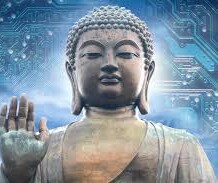The Four Immeasurables in Buddhism

Central to Buddhist spiritual practice is a deep appreciation of the present moment and the possibilities that exist in the present for waking up and being free of suffering. They represent a way of experiencing the past and the future in an enlightened manner – one that avoids suffering and encourages peace and happiness.
Although this form of these ideas has a Buddhist origin, the ideas are in no way sectarian. The Sarvodaya Shramadana Movement uses them in public meditation events in Sri Lanka bringing together Buddhists, Muslims, Hindus and Christians.
The Four Immeasurables are:
1. Loving-kindness: “the wish that all sentient beings, without exception, be happy.”
2. Compassion: “the wish for all sentient beings to be free from suffering.”
3. Empathetic Joy: “the wholesome attitude of rejoicing in the happiness and virtues of all sentient beings.”
4. Equanimity: “not to distinguish between friend, enemy or stranger, but regard every sentient being as equal. It is a clear-minded tranqu state of mind – not being overpowered by delusions, mental dullness or agitation.”
Loving-kindness and compassion can both be viewed as hopes for the future leading, where possible, to action aimed at realizing those hopes. Joy and equanimity can be seen as attitudes useful for reflecting on what has already past and, through this reflection, present us with an opportunity to apply knowledge to our actions. Though the four immeasurable might be delineated as attitudes to the future or past, they contain the seed of the present within their core as they manifest new ways to act (a living embodied practice).
“All we experience is preceded by mind,
Led by mind, made by mind.
Speak or act with a corrupted mind
And suffering follows
As the wagon wheel follows the hoof of the ox.
All we experience is preceded by mind,
Led by mind, made by mind.
Speak or act with a peaceful mind
And happiness follows Like a shadow that never leaves.” Dhammapada 1-2.
The four immeasurable are explained in “The Path of Purification” (Visuddhimagga), written in the fifth century CE by the scholar and commentator Buddhaghosa. They are often practiced by taking each of the immeasurable in turn and applying it to oneself, and then to others nearby, and so on to everybody in the world, and to everybody in the universe.





